The ICJ recognized the positive bar reform of 2012, which ensured its independence
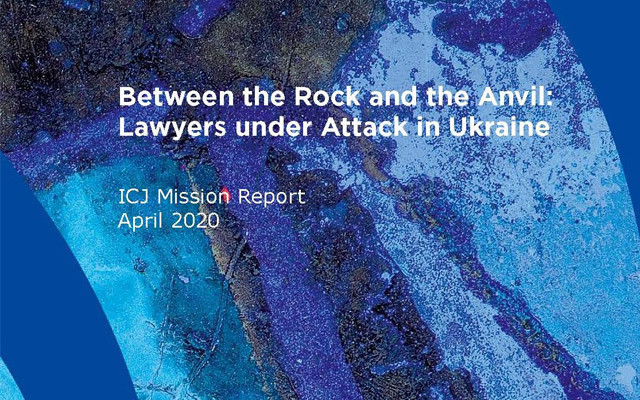
The reform of 2012 created challenges for the profession, though subsequent events have shaped its institutional independence which has crystallized in its active support of lawyers under threat.
This is stated in particular in the report of the International Commission of Jurists (ICJ) called «Between the Rock and the Anvil: Lawyers under Attack in Ukraine» issued following ICJ one-week mission to Ukraine from 4 to 8 March 2019 to assess the situation of security and independence of lawyers.
The report states that prior to the 2012 reform, membership in the Bar Association was not mandatory and there was no single structure governing all practicing lawyers, i.e. a National Bar Association. In 2012, the new law “On the Bar and Legal Practice” (currently in force) was adopted 59 The law launched a reform of the legal profession aiming to establish a national Bar Association with mandatory membership 60 The European Commission for Democracy through Law (the Venice Commission) of the Council of Europe published an opinion on the draft law concluding that “[t]he draft Law [was] coherent and provide[d] a good basis for regulating the profession of the advocate”.
The ICJ stressed that it was the National Bar Association of Ukraine that ensured the independence of the bar not only at the legislative level, but also in practice, going through a period of instability.
«This independence constitutes an important achievement which should not be underestimated or taken for granted. The independence of the the profession is a bedrock for the independence of the justice system which cannot function effectively without independent lawyers”, - the report said.
At the same time, the ICJ recommended changes to be made in Ukraine and noted that UNBA, as well as individual lawyers, should be involved at every stage of drafting legislation on its operation, in particular those relating to the bar and the Bar Association itself.
“UNBA should participate in public discussions on issues related to legislation, the functioning of the justice system, and the promotion and protection of human rights through the justice system. The Bar Association should also be involved in consultations on other legislative procedures that may affect the rights and independent status of the bar,” - the report said.
It will be recalled that this was repeatedly emphasized by UNBA President Lidiia Izovitova when the Verkhovna Rada was adopting the draft law № 1013 on the abolition of the advocate's monopoly. However, the position of UNBA was not taken into account - the document was preliminarily approved in January 2020.
The ICJ was established in 1952 and operates on five continents. Its purpose is to ensure the progressive development and effective application of international human rights law and international humanitarian law; ensuring the realization of civil, cultural, economic, political and social rights; protection of the separation of powers; and guaranteeing the independence of the judiciary and the legal profession
Popular news

Discussion
Why lowering the age of marriage lacks legal logic
Although until 2012 there was a provision in family law that allowed children to marry from the age of 14 under certain circumstances, its return to Ukrainian law would contradict international obligations and the logic of criminal law.

Self-government
A report on Ukrainian advocacy was presented in the European Parliament
Can a shadow report on advocacy replace the political framework of the Roadmap on the rule of law with demands for the restructuring of self-government? Where is the line between accountability and the seizure of institutions? And how can we respond to narratives with data rather than impressions?
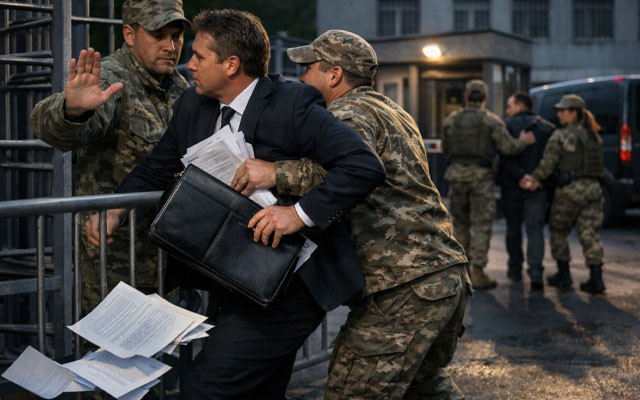
Guarantees of the practice of law
Proceedings opened following attack on advocate in Dnipro
The Committee for the protection of advocates' rights and guarantees of legal practice of the UNBA appealed to law enforcement agencies in connection with an advocate's report of an attack while performing his professional duties. The information was entered into the Unified Register of Pre-trial Investigations and a pre-trial investigation was initiated.
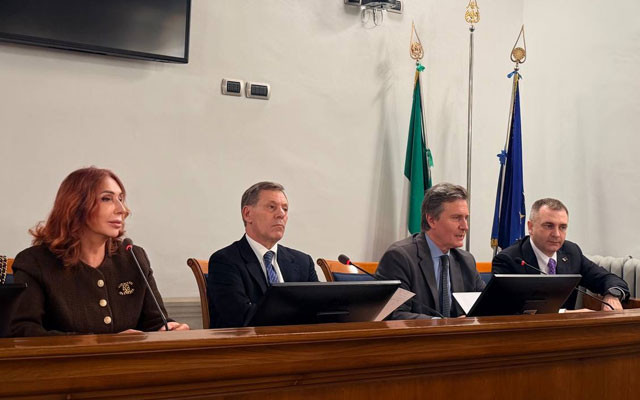
Interaction
«With us — to Europe»: Italian advocacy supports UNBA initiatives
On January 30, a meeting was held in Rome between a delegation from the Ukrainian National Bar Association and the National Bar Council of Italy (Consiglio Nazionale Forense, CNF) on the standards and practices of the legal profession and their significance for Ukraine's European integration process.
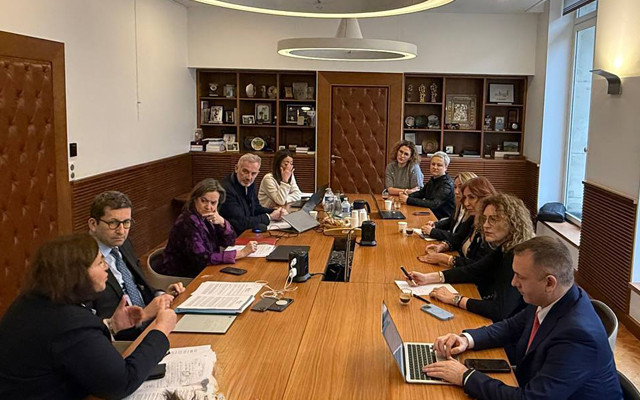
Interaction
France confirms cooperation with UNBA on reforms in the field of the rule of law
On January 29, a working meeting between representatives of the Ukrainian National Bar Association and the French National Bar Council (Conseil National des Barreaux, CNB) took place in Paris.
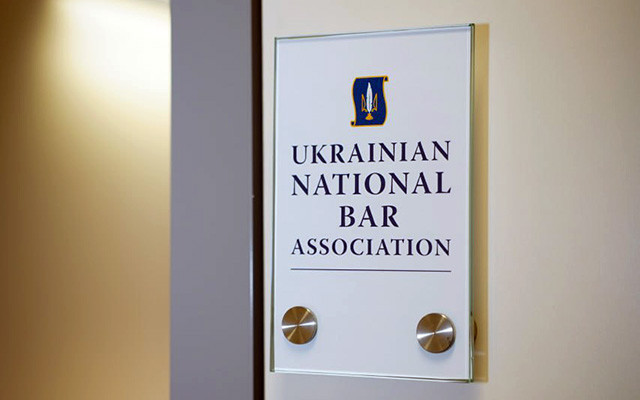
Abroad
UNBA office opens in EU capital
To strengthen the institutional presence of the Ukrainian advocacy community at the European level, an office of the Ukrainian National Bar Association has been opened in Brussels (Belgium), which will serve as a permanent platform for dialogue with European partners.
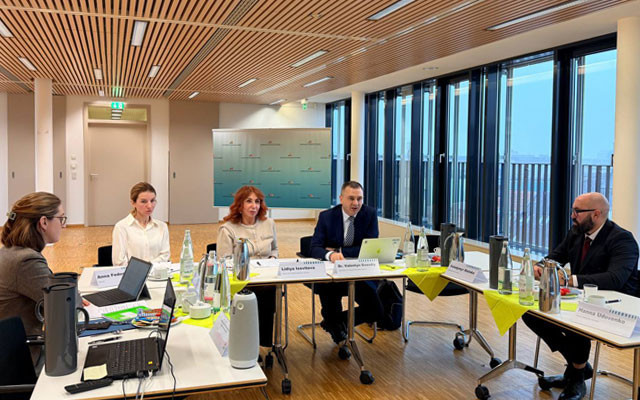
Interaction
UNBA and BRAK discussed European integration priorities and regulation of the profession
On January 26, a meeting was held between representatives of the Ukrainian National Bar Association and the German Federal Bar Association (Bundesrechtsanwaltskammer, BRAK).
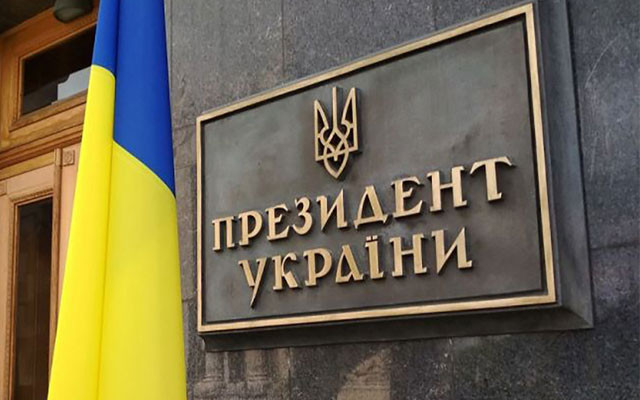
Guarantees of the practice of law
The President was urged to sign the law on strengthening guarantees for advocacy activities
The professional community of advocates called on Ukrainian President Volodymyr Zelenskyy to sign Law No. 4547-IX, which strengthens guarantees for advocates' activities, in particular by introducing liability for identifying an advocate with a client.
Publications

Volodymyr Matsko Extradition as a systemic form of rights violations

Victoria Yakusha, Law and Business The anti-corruption vertical cannot «take care» of the Bar as an institution, - acting head of the HQDCB

Censor.net Protecting advocates – protecting justice: addressing concerns about the new law

Ihor Kolesnykov A BRIEF SUMMARY REGARDING THE APPLICATION OF THE ORDER ON EXTENDED CONFISCATION IN LATVIA REGARDING FINANCIAL ASSETS OF…

Valentyn Gvozdiy WORKING IN A WAR ZONE

Lydia Izovitova Formula of perfection

Sergiy Vylkov Our judicial system is so built that courts do not trust advocates

Iryna Vasylyk Advocacy in the proclamation of Independence of Ukraine
